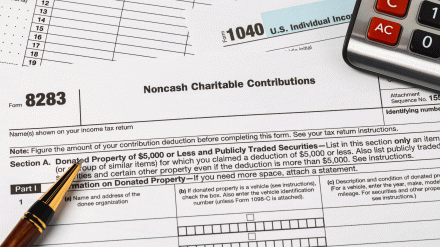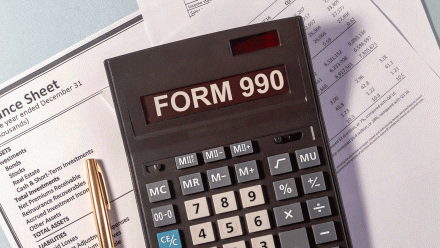The definition of embezzlement varies slightly from state to state, but in general, it refers to the wrongful conversion of property that is lawfully in your possession. The idea is that someone has legal control or custody of property or funds, and then decides to convert the property or funds to his or her own personal use.
Most people who embezzle funds, including many church employees, insist that they intended to pay the money back and were simply “borrowing” the funds temporarily. One can only imagine how many such schemes actually work without anyone knowing about it.
An intent to pay back embezzled funds is not a defense to the crime of embezzlement. The courts are not persuaded by the claims of embezzlers that they intended to fully pay back the funds they misappropriated. The crime is complete when the embezzler misappropriates the church’s funds to his or her own personal use. As one court has noted:
The act of embezzlement is complete the moment the official converts the money to his own use even though he then has the intent to restore it. Few embezzlements are committed except with the full belief upon the part of the guilty person that he can and will restore the property before the day of accounting occurs. There is where the danger lies and the statute prohibiting embezzlement is passed in order to protect the public against such venturesome enterprises by people who have money in their control.
In short, it does not matter that someone intended to pay back embezzled funds. This intent in no way justifies or excuses the crime. The crime is complete when the funds are converted to one’s own use.
What if the embezzled funds are returned?
Giving stolen money back does not mean it was not stolen and a crime has not been committed.
Of course, it may be less likely that a prosecutor will prosecute a case under these circumstances. And even if the embezzler is prosecuted, this evidence may lessen the punishment. But the courts have consistently ruled that an actual return of embezzled funds does not purge the offense of its criminal nature or absolve the embezzler from punishment.
Key point. Even if an embezzler is caught or confesses, and then agrees to “pay back” the embezzled funds, church officials seldom know if all embezzled funds are being returned. They are relying almost entirely on the word of the embezzler.
Why churches often are vulnerable to embezzlement.
Many churches refuse to adopt measures to reduce the risk of embezzlement out of a fear that such measures will reflect a lack of trust in those persons who handle church funds.
Example. Tom has counted the church offering at his church for 25 years. The church board has discussed this arrangement several times, but fails to stop it out of a fear of offending Tom.
Why should church leaders take this risk seriously?
For several reasons, including the following:
- Data suggests the risk is very real. Church Law & Tax’s nationwide survey demonstrates that embezzlement is a risk that every church should take seriously.
- Removing temptation. Churches that take steps to prevent embezzlement remove a source of possible temptation from church employees and volunteers who work with money.
- Protecting reputations. By taking steps to prevent embezzlement, a church protects the reputation of innocent employees and volunteers who otherwise might be suspected of financial wrongdoing when financial irregularities occur.
- Avoiding confrontations. By taking steps to prevent embezzlement, a church avoids the unpleasant task of confronting individuals who are suspected of embezzlement.
- Avoiding church division. By taking steps to prevent embezzlement, a church avoids the risk of congregational division that often is associated with cases of embezzlement—with some members wanting to show mercy to the offender and others demanding justice.
- Avoiding the need to inform donors. By taking steps to prevent embezzlement, a church reduces the risk of having to tell donors that some of their contributions have been misappropriated by a church employee or volunteer.
- Protecting the reputation of church leaders. By taking steps to prevent embezzlement, a church reduces the damage to the reputation and stature of its leaders who otherwise may be blamed for allowing embezzlement to occur.
- Preserving accountability. Churches that take steps to prevent embezzlement help to create a “culture of accountability” with regard to church funds.
These are powerful motivations for addressing the issue of embezzlement.
How it happens.
Let’s look at several cases of actual embezzlement of church funds to see how it can occur.
Be sure to check out Church Law & Tax’s Safeguarding Your Church’s Finances.
Example 1:
An usher collected offerings each week in the church balcony, and pocketed all loose bills while carrying the offering plates down a stairway to the main floor. Church officials later estimated that he embezzled several thousands of dollars over a number of years before being caught.
Example 2:
The same two persons counted church offerings for many years. Each week they removed all loose coins and currency (not in offering envelopes) and split it between them. This practice went on for several years, and church officials later estimated that the two had embezzled several tens of thousands of dollars.
Example 3:
A church left its Sunday offering, along with the official count, in a safe in the church office until Monday. On Monday morning, a church employee deposited the offering. The employee ignored the official counts, and deposited the offering less loose coins and currency (which she retained). The deposits were never checked against the offering counts.
Example 4:
A church child care director embezzled church funds by issuing herself paychecks for the gross amount of her pay (before deductions for tax withholding). The church withheld taxes and paid them to the government, but her paychecks reflected the gross amount of her pay.
Tip. Make certain duties for payroll are segregated in the same way that they should be segregated for other financial functions. Specifically, make sure two or more unrelated persons are involved with the custody of paychecks or online access to pay rates and deposits, authorization of paychecks and online transactions, and the recordkeeping for entering and reconciling payroll information within the accounting system.
Example 5:
A pastor had the sole authority to write checks using the church’s checking account. He used church funds to pay for several personal expenses, amounting to thousands of dollars each year, until his actions were discovered.
Tip. Two unrelated persons should always be involved with the custody of checks, reviews and approvals, and signatures.
Example 6:
A church bookkeeper embezzled several thousand dollars by issuing checks to a fictitious company. He opened an account in the name of a fictitious company, issued church checks to the company for services that were never performed, and then deposited the checks in the fictitious company’s account. He later withdrew the funds and purchased two automobiles, which he gave to a friend. A court ruled that the friend had to give the cars back to the church, since they had been purchased with embezzled church funds. The point here, as noted by the court, is that one who acquires property that was purchased with embezzled church funds may be required to transfer the property to the church.
Tips. Review your church’s conflict-of-interest policy to make certain all business conducted with outside parties goes through a review and approval process. Again, all cash disbursements should be handled by at least two unrelated persons for review, approval, and signature.
Example 7:
A minister received an unauthorized kickback of 5 percent of all funds paid by a church to a contractor who had been hired to build a new church facility. The minister received over $80,000 from this arrangement in exchange for which he persuaded the church to use the contractor. The minister’s claim that the $80,000 represented a legal and nontaxable “love offering” was rejected by a federal court that found the minister guilty of several felony counts. This arrangement was not disclosed to the church board, and obviously amounted to an unauthorized diversion of church funds back to the minister.
Tip. An effective conflict-of-interest policy can help uncover potential situations in which someone in a position of authority, such as a pastor, stands to personally gain from a transaction involving the church.
Example 8:
A church accountant embezzled $212,000 in church funds. This person’s scheme was to divert to his own use several designated offerings, and to inflate the cost of equipment that he paid for with his own funds and that the church later reimbursed at the inflated amounts. The interesting aspect of this case was that the accountant was not only found guilty of embezzlement, but he was also convicted for tax evasion because he had failed to report any of the embezzled money as taxable income. He was sentenced to prison.
Example 9:
A court ruled that an insurance company that paid out $26,000 to a charity because of an act of embezzlement could sue the embezzler for the full amount that it paid. This is an important case, for it demonstrates that a church employee who embezzles church funds may be sued by the church insurance company if it pays out a claim based on the embezzlement. In other words, the fact that the church decides not to sue the embezzler does not mean that the person will be free from any personal liability. If the church has insurance to cover the loss, the insurance company can go after the embezzler for a full recovery of the amount that it paid out on account of the embezzlement.
We’ve used a combination of AI and human review to make this content easier to read and understand.
Richard R. Hammar is an attorney, CPA and author specializing in legal and tax issues for churches and clergy.










